Deloitte's data dynamo Kellie Nuttal turns to ‘digital twins’ to tame Covid-19
From her office in Brisbane, Dr Kellie Nuttall’s job is to build solutions to wicked problems and Covid-19 ticks the box.
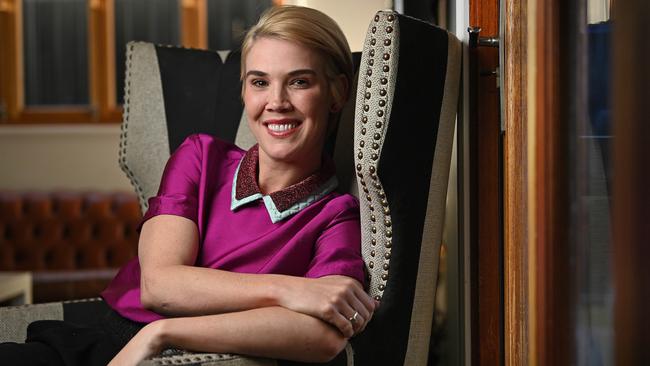
“When you turn on the news, you just see queues: queues for vaccination, queues for tests. I see data.”
From her office in Brisbane, Dr Kellie Nuttall’s job is to build solutions to wicked problems and Covid-19 ticks the box.
A digital native still in her 30s, Nuttall is one of Deloitte Australia’s youngest partners, promoted under chief executive Adam Powick’s leadership and now the artificial intelligence lead for the firm. For the past nine years, she has been knee-deep in big data analytics and artificial intelligence and more recently data-rich virtual models known as “digital twins”. She says these will give Australia a much-needed boost to get ahead of the curve in the pandemic.
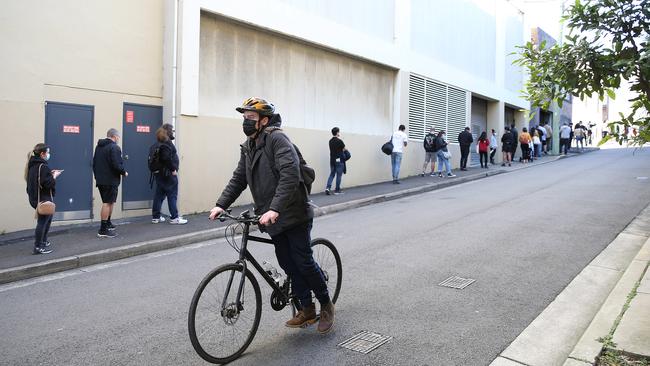
“I see data. I see supply and demand issues that are just waiting to be optimised,” Nuttall tells The Australian.
“Imagine looking at that vaccination and testing system as a whole. We could build the digital twin of it, and we can quickly see where we have supply and where we have demand issues and how we optimise that system. The digital twins can tell us where tomorrow’s bottlenecks are likely to be before they have even occurred. That’s how we can reduce pressure on the system,” she says.
Digital twins use data to understand fiendishly complex and ever-changing environments.
Vast amounts of data are combined to create a complete digital copy of the environment, which could be a company or a community.
Twins have explored space, made cities smarter, optimised manufacturing systems and generated renewable energy more efficiently.
“There are answers in the data but you need to know what questions to ask of that twin,” Nuttall says.
“What twins are really effective at doing is scenario testing. In a pandemic, I believe that can be extremely effective in helping us test a range of scenarios very quickly to shape an optimal response.”
In Australia, there’s a wealth of lazy data at our disposal.
“Every business and every government has data: census data, health data, QR check-in data, demographic data, retail data, mobility data, sewage data. Data, data, data,” Nuttall says with some urgency.
“Businesses may not even realise the value of that data. It may have been collected for a different purpose. We have just learnt so much from the past 12 months in our Covid environment. There is a story in that data. If we know what questions to ask, we can get a far more comprehensive and richer picture of the situation, which can then be used to predict outcomes from issues before they even happen, to help us navigate the daily challenges that we are all being faced with right now.”
On census night this week there will be 16 million Australian in lockdown, including Melburnians with their sixth lockdown. And it not just street protesters demanding alternatives.
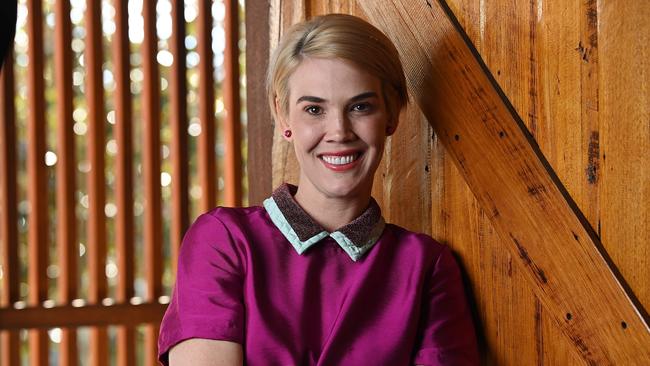
Nuttall says digital twin work using sewage data, as in the Hunter region (two days before Covid cases emerged), is an obvious start.
“We hear on the news every night: sewage data is detecting the virus. That is data where we have a trend starting to show a virus and we need to start combining that with other information. If we see remnants of that in a particular suburb, what else do we know about that suburb? Do they have a risk of vulnerable populations? Do they have highly mobile population where we have a workforce with multiple jobs moving around? What is the vaccination status of that area?”
The answers, she says, start to paint a different picture when compared to another suburb. “You can start to take more targeted action based on what you know around that sewage data but with other data sources. And you can use that historical data to start to be more predictive for where we see it in the future in other sewerage systems at other parts of the network. That is where we want to get to, getting far more predictive, rather than reactive.”
Nuttall may be data nerd, but she’s pretty funky with it.
“I was chatting to someone today about AI and its ability to generate text,” she posted on social media. “It’s not perfect yet but it IS extremely entertaining,” she opined of the rather different version of ‘‘Harry Potter and the Portrait of what Looked Like a Large Pile of Ash’’.
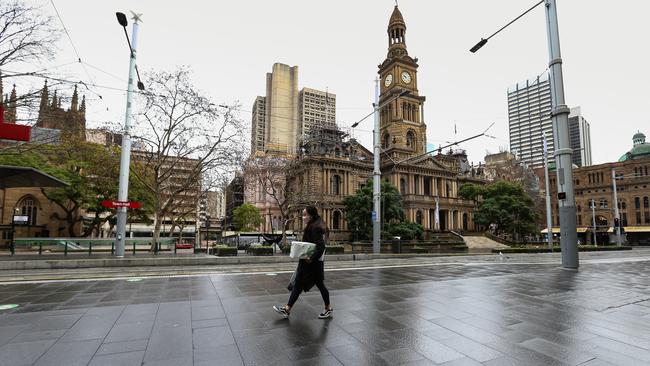
With a doctorate in consumer decision-making and nudge psychology, and three years in integrated transport planning with Queensland’s Department of Transport and Main Roads, she has a passion for all things transport-related: trains, planes and automobiles, scooters, autonomous and electric vehicles, VTOL (virtual take-off and landing aircraft) and jetpacks.
Nuttall says she pinches herself every day, working with the legends who have built the most innovative digital twin platform she has seen. Deloitte’s Optimum Reality started with Formula One, one of the pioneer sectors in digital twins, using real time and historic race data and live weather data to improve race performance.
Some of the most important work by Nuttall and her team has been for AirServices Australia. A digital twin of the skies (about 11 per cent of global air space) has helped Australian air traffic controllers in managing sectors and rosters and improving network planning by simulating models based on weather patterns and traffic behaviour.
“The twins I specialise in are around real-time decision making,” Nuttall says. “Scenario planning tools traditionally have been used for longer-term planning. That’s not a luxury we have in an environment like this. We need to think how we embrace cloud and AI to run really sophisticated models really quickly because we don’t have months to test scenarios like we have in the past.”
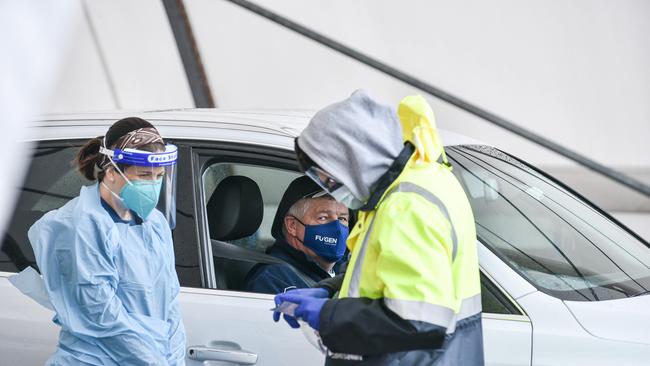
One fresh cohort sideswiped by the pandemic are the families trying to keep up with footy players. Take the Sydney Swans and the Giants who flew to Queensland to escape shutdown. Families followed and were quarantining in Brisbane when the teams were forced to move to Melbourne when a snap lockdown there stopped play. “That’s a great example,” says Nuttall. “You could be scenario testing based on outbreak patterns. There is an infinite amount of possibilities that you have with data.”
The success of a digital twin is in having the right questions when testing scenarios. Take supply and demand, says Nuttall.
“We are seeing it with construction materials in the building sector. What if renovations go up, what does that do to supply of timber? If you know the questions you want to answer and you have the access to the data that can answer it, you can quickly test those scenarios before putting it into the real world, which is the real power of digital twins. In a matter of weeks you can start using this information in really sophisticated ways to make much more targeted decisions.”
Once questions are fired off and scenarios built, the value of the data is enduring. “With every data-driven response we take we are optimising our capacity to manage our way through this pandemic as effectively as possible so we can get ahead of that curve. We have the greatest opportunity to lead the way here in Australia and it is such an important conversation to be having.”
Inevitably, one constant question about data is privacy. The pandemic if anything has confused where public opinion sits. “I think Australians understand, as we have with the QR codes, that there is responsibility now to use any data now in the right way and always in the right way,” says Nuttall. “We are in this time and place where data can genuinely give back to Australians.”


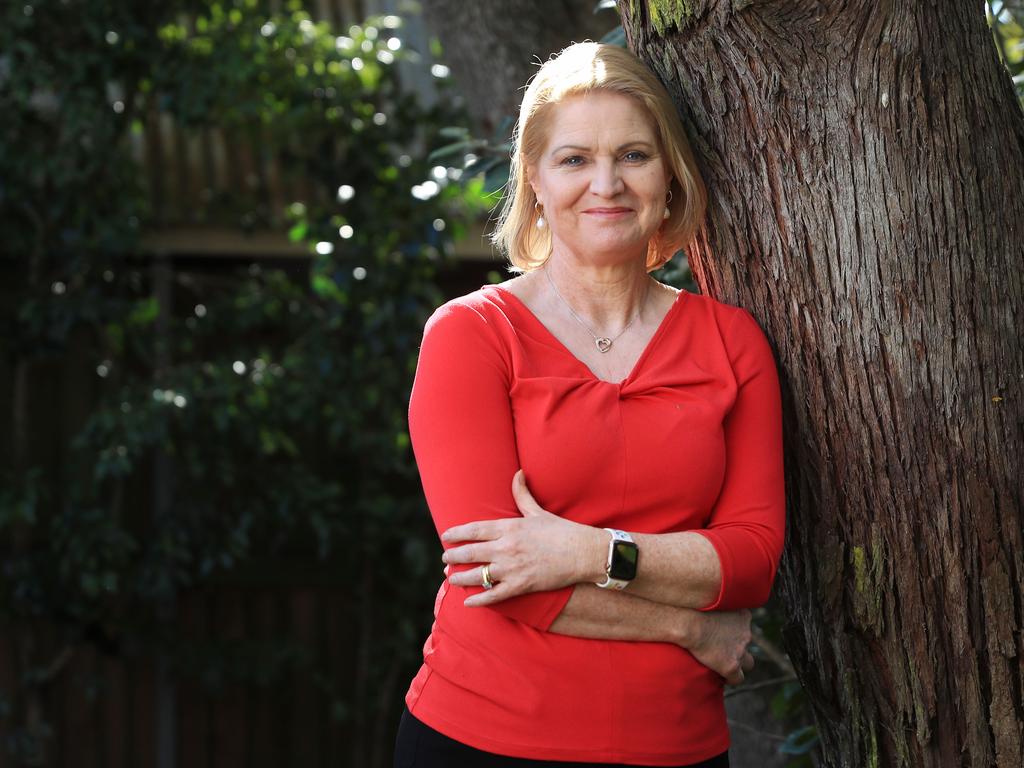
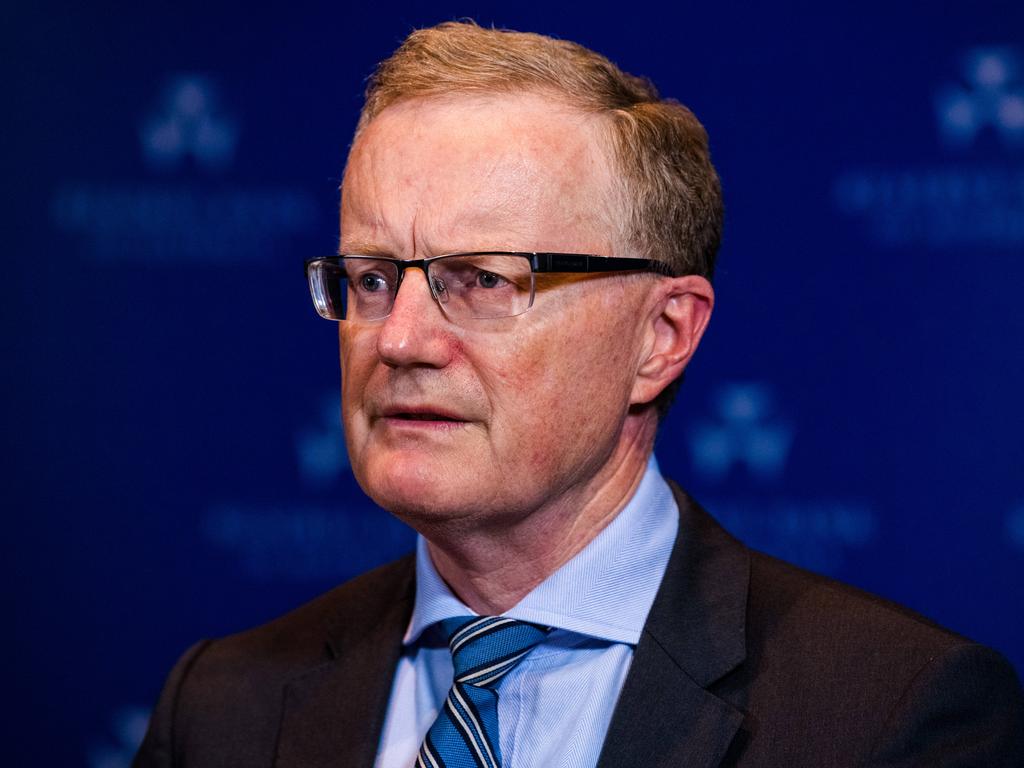



To join the conversation, please log in. Don't have an account? Register
Join the conversation, you are commenting as Logout